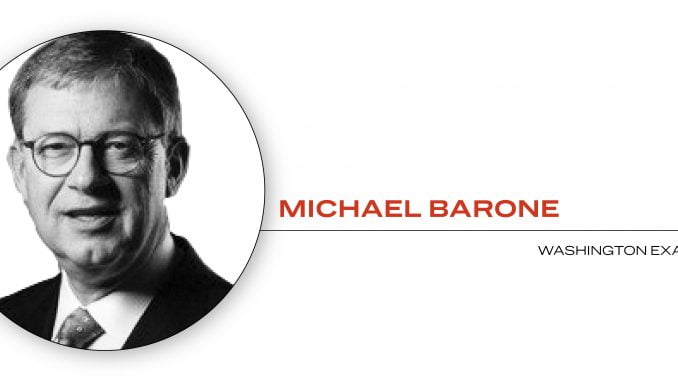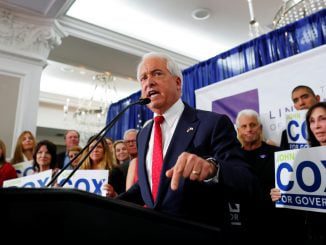
To explain the latest young generation’s pessimism, Washington Post opinion writer Taylor Lorenz took to what was then called Twitter last February to lament “the fact that we’re living in a late-stage capitalist hellscape during an ongoing deadly pandemic w record wealth inequality, 0 social safety net/job security, as climate change cooks the world.”
Readers quickly pointed out Lorenz’s breathtaking lack of historical perspective: The vast majority of human beings for centuries lived in poverty today’s Americans can scarcely imagine, until market capitalism started producing startling economic gains some 200-plus years ago, gains that have been widely dispersed today.
Or as veteran journalist Joe Klein responded to proposals for an overhaul of our economic system, “How about a little perspective: The American economy is the envy of the world. Poor people here would be considered middle class in most other places. That’s why so many folks over there want to emigrate.”
Which is not to say there isn’t some cause for complaint. One gathers that President Joe Biden and those around him are puzzled by voters’ negative responses to his economic policies. That puzzlement may have its roots in Biden Democrats’ assumption that Americans needed massive jolts of federal money, jolts that inflicted perceptible inflation on the many in the course of relieving genuine distress for only a few.
That has caused predictable dissatisfaction among an electorate only whose oldest sliver of voters remembers a time of perceptible inflation. Voters typically make judgments based on personal experience, and the low-inflation economic growth, tilted toward those on the low end of the economic ladder, of the pre-COVID Trump years looks better than the high-inflation, low-unemployment economy of the post-COVID Biden years.
Another way to put this is that the long-term success of the economy has created high expectations that contemporary politicians have difficulty living up to. The liberal pundit Dean Obeidallah, defending former President Barack Obama’s record after he left the White House, pointed out that since 1971, when pollsters started asking the question, the public has replied that the country is not generally moving in the right direction but is pretty seriously off on the wrong track.
Brief exceptions have come during the administrations of Ronald Reagan (1984-86) and Bill Clinton (1998-2000) and just after the attacks of Sept. 11, 2001. But not lately. Strong partisan feelings in a roughly evenly divided country have made it hard for presidents to win majority approval or get people to think that things are headed in the right direction.
Those strong feelings also explain why the nation is headed to an election in which the likely nominees of both parties seem likely to be opposed by majorities of the electorate. This actually isn’t abnormal. In four of the eight presidential elections since 1990, neither party’s candidate has won a majority of the popular vote, and in only one of those elections, 2008, did any candidate win more than 51% of the vote.
State governors do much better, with the large majority typically getting over 50% approval. But note that the highest job ratings go to governors in states heavily favoring one party. That includes incumbents of the minority party, who start off with personal popularity and whose partisan impulses are reined in by the dominant party’s majorities in the legislature.
Of course, the entire nation is not a one-party constituency and hasn’t had a dominant party since 1952. Then, for four decades, Republicans had something like a lock on the presidency and the Democrats something like a lock on both houses of Congress.
Today, neither party has a lock on either, and both parties have gotten into the habit of violating norms. Thus, Democrats spread the Russia collusion hoax, and many Republicans followed Donald Trump in proclaiming that he really won the 2020 election.
It’s possible still to imagine that the parties won’t get stuck with the 77-year-old Trump and the 81-year-old Biden. Gov. Ron DeSantis (R-Fla.) in Iowa or Nikki Haley in New Hampshire could achieve a Gene McCarthy-like result that loosens the hold on Republican voters that Democratic prosecutors have given Trump. Biden could be moved by that or other circumstances to step aside.
But even a new 47th president will start off with many partisan detractors. Democratic elections are an adversary process, and Republican policies are weakened when adversaries transgress long-standing norms. Americans, even if they don’t realize it, are the lucky beneficiaries of two centuries of unprecedented economic growth, of a constitutional framework and rule of law bequeathed by wise Founding Fathers, of a continental geography long immune from attack. That’s something to keep in mind, even as we lament, legitimately, our political woes.
Michael Barone is a senior political analyst for the Washington Examiner, resident fellow at the American Enterprise Institute and longtime co-author of The Almanac of American Politics. His new book, “Mental Maps of the Founders: How Geographic Imagination Guided America’s Revolutionary Leaders,” is now available.



